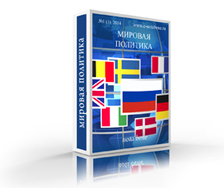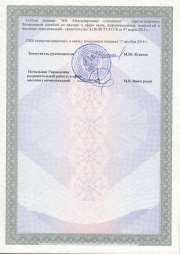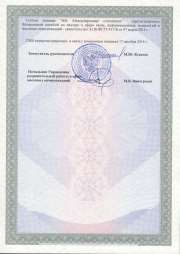|
MAIN PAGE
> Journal "World Politics"
> Contents of Issue № 01/2022
Contents of Issue № 01/2022
|
Veselov Y.A. - Reaction of the world community to the reclassification of Hagia Sophia as a mosque
|
|
pp. 1-22
|
DOI: 10.25136/2409-8671.2022.1.33742
Abstract: The research is a comprehensive reflection of the world community’s reaction to the reclassification of Hagia Sophia as a mosque. As a methodological base, the authors use the division of the world proposed by Samuel Phillips Huntington. Along with the analysis of international connections, the article includes discussions about the division of the world, desecularization, and the growth of authoritarianism based on the example of the modern Republic of Turkey under the government of Recep Tayyip Erdoğan. The authors give special attention to the urgent problem of a dialogue between religions - the reaction of the heads of religious institutions. It’s also noteworthy that in order to provide a comprehensive review of Mass Media, the authors use sources in 18 languages including Russian, and those translated by the author. The uniqueness of this research is determined by the absence of a relevant comprehensive reflection (as a manifestation of the reaction of the world community) of this event in the Russian scientific discourse. The main conclusion of this research is the assertion of the reappearance of Neo-Ottomanism, which, in its turn, proves the reality of the transformation of the world order from the unipolar to the multipolar one. The authors find out that Saudi Arabia and Egypt consider themselves as the key geopolitical rivals of Turkey, as these Muslim countries were among the few ones which reacted negatively to this domestic political decision. The research also shows that in general, international Mass Media have professionally covered Erdogan’s decision and outlined the rational reasons along with the religious factor: the aspiration of the ruling elite to distract the attention of the public from negative economic effects of the pandemic, and make the political in-fighting work in their favor.

|
Questions of current interest |
|
Yanikeeva I.O. - Promising directions of development and intensification of international cooperation in the field of international cyber security
|
|
pp. 23-34
|
DOI: 10.25136/2409-8671.2022.1.37532
Abstract: The article considers the current prospects of concluding a binding cyber-agreement about a wide range of questions of international cyber security in the context of the lack of mutual confidence between states and the striving of some countries to use their technological advantages to dominate in the digital sphere. The author considers such aspects of the topic as the potential of collective resistance of states to digital threats by taking measures aimed at the strengthening of confidence and the creation of a cyber weapons control system. Special attention is given to the consideration of objections against the international binding cyber-agreement. The author analyzes the strengths and weaknesses of coordinating measures aimed at strengthening confidence and the creation of a cyber weapons control system. The main conclusion of the research is that most objections against the international binding agreement, including the problems of rapid technological change, fail under close examination. The author’s special contribution to the study of the application of a case analysis for the detection of agreements suitable for the development of a cyber-agreement according to such parameters as the conclusion of as agreement despite the problem of attribution and high speed of technological changes, and in spite of the opinion that it is too early to sign an international treaty regulating actions in this or that sphere until new technologies are used for a certain amount of time. The scientific novelty of the research consists in the comprehensive analysis of the possibility to conclude a cyber-agreement and create a cyber weapons control system, which will allow proposing the ways to overcome contradictions and conclude a global complex cyber agreement and create a global cyber weapons control system.

|
Chmyreva V. - International presence in Ukraine in the context of the triangle "Ukraine-Turkey-Russia"
|
|
pp. 35-47
|
DOI: 10.25136/2409-8671.2022.1.37419
Abstract: The subject of the study is the peculiarities of Ukraine's foreign policy development at the present stage in the context of the triangle "Ukraine-Turkey-Russia". The paper shows that Ukraine is currently a zone of growing international presence: the involvement of a wide range of participants in the region in the person of international state and non-state actors, the actual internationalization of the Ukrainian transport and logistics system and port infrastructure, strengthening state sovereignty and increasing the country's defense capability through the implementation of extensive programs of financial support from Western partners – evidence systemic and long-term processes that directly affect the interests of the Russian Federation. The role of the Turkish factor in Ukraine is studied through the prism of Turkish-Ukrainian relations and Ukrainian Euro-Atlantic integration. The balance of Turkey's relations with Ukraine and Russia is shown. The analysis of the possibilities of Turkish mediation in de-escalation of relations between Russia-Ukraine and Russia-NATO is given. The relevance of the research topic is determined by the current tense international situation and military-political escalation in the region. The source base of the work includes normative-legislative acts, sources of normative-reporting and informational nature, journalistic sources. The scientific novelty of the article lies in the involvement of the corpus of the latest sources, the original perspective of the study and the theoretical and methodological approach. As a result of the analysis and on the basis of up-to-date factual information, the author concludes that despite Kiev's active support for the territorial integrity of Ukraine and the growth of military-technical cooperation between the countries, Turkey is not interested in the Ukrainian-Russian confrontation. Military escalation will create risks for the Turkish Republic of direct involvement in conflict relations between NATO and the Russian Federation and will deprive it of the opportunity to become an "independent center" of political influence in the region. At the same time, it is emphasized that Turkish mediation and the internationalization of the Ukrainian issue can contribute to de-escalating tensions and strengthening the foreign policy positions of the Russian Federation.

|
Albertyan A.P. - Development of the mineral resource complex as an increase in the geopolitical status of Russia
|
|
pp. 48-58
|
DOI: 10.25136/2409-8671.2022.1.37713
Abstract: The state of the mineral resource complex is one of the foundations of the functioning and development of Russia in the context of the global geopolitical struggle. The geopolitical status of the state today largely depends on how the country will be able to respond to the challenges associated with the depletion of traditional mining areas and the beginning of a new stage of energy transition. In this article, the author provides an overview of the mineral resource complex of Russia, and also analyzes the dependence of the geopolitical status on the state of the mineral resource complex. According to the results of the study, the author concludes that the mineral resource potential of Russia, although it is one of the largest in the world, at the same time, there is a problem of shortage of certain types of minerals (manganese, chromium, titanium, bauxite, zirconium, beryllium, lithium, rhenium, rare earths of the yttrium group, hydrofluoric spar, bentonites for foundry production, feldspar raw materials, kaolin, large-leaf muscovite, iodine, bromine) and the country's dependence on imports. The deficit is caused by both the growth of consumption of certain types of minerals, and low quality, as well as poor development of some domestic deposits. In order to successfully develop Russia, the country needs to increase the volume and improve the quality of the mineral resource base that can meet the demand of high-tech and technological sectors of the economy (military-industrial complex, dual-use systems, medicine, etc.).Increasing the volume and improving the quality of the country's mineral resource base is possible due to the development of new areas and the search for new, high-quality deposits of strategic and scarce mineral raw materials. In this connection, the author examines in detail the cooperation in the field of mineral resources development in the Republic of Kazakhstan, in the Socialist Republic of Vietnam, as well as with the People's Republic of China. In carrying out this research, the author applied the methods of content analysis, historical and systemic.

|
Theory and methodology of international relations |
|
Wu Y. - The concept of the "Indo-Pacific region" and the "Indo-Pacific Strategy" of the USA: formation, development and Chinese views
|
|
pp. 59-71
|
DOI: 10.25136/2409-8671.2022.1.35735
Abstract: The regional concept - "Indo-Pacific region" has become a popular topic for research in modern international politics with the active promotion of four countries (USA, Japan, India and Australia). The Indo-Pacific strategy championed by the US Trump administration is the most significant among them and has strengthened the use of the emerging regional term "Indo-Pacific region". After the trade war, relations between China and the United States deteriorated, and Sino-American relations have become one of the most important relations in the field of international relations in this century, and the Indo-Pacific Strategy of the United States, developed under Trump, remains one of the concrete manifestations of the Sino-American great power game. This article explains the evolution of the concept of the "Indo-Pacific region", and the formation and development of the Indo-Pacific Strategy of the United States, as well as explains the fundamental goals of the Indo-Pacific Strategy of the United States and the structural conflict in the geopolitics of the Indo-Pacific region through generalizing the views and opinions of Chinese academia about the U.S. strategy in the Indo-Pacific region. The strategy and policy of the United States in the Indo-Pacific region pursues the main goal of maintaining US hegemony, and this is also closely related to the rise of the PRC. Massive military commitments and a large number of US armed forces in the Indo-Pacific region and the growth of the military power of the PRC will become the most central contradiction in the geopolitical structural conflict between the PRC and the USA in this region. The US military policy in this region will cause discontent of the PRC and even regional conflicts, but at the same time it should be noted that due to the firm strategic determination of the PRC, the PRC's own economic development and the limitations of internal factors of the USA, the US Indo-Pacific strategy will not hinder the peaceful growth of the PRC in this region.

|
Dzhanabi Y.S. - The internal causes of Iraqi political instability after 2003
|
|
pp. 72-79
|
DOI: 10.25136/2409-8671.2022.1.35548
Abstract: This research topic is discussed in order to analyze the phenomenon of political instability in Iraq after 2003, in terms of the basic concept, origins and mechanisms of its resolution. There is a large variety of objects that can be researched. Firstly, the objective of subjectivity: It is linked to my, the researcher's, desire to discuss the phenomenon of political instability in Iraq after 2003 as part of my particular specialization in Iraqi affairs. Secondly, there are scientific objectives. I feel that there is insufficient research and analysis regarding this topic. Thirdly, impartial objectives: I seek to find effective resolutions to the political instability phenomenon, which has continued to have a negative impact on quality of life for Iraqis. The results of this research should be placed in the hands of political decision makers as it presents some feasible solutions that could help leaders choose the best path forward to resolve this phenomenon. Syllabus: The study was conducted on the basis of a systemic analytical approach based on inputs and outputs. Problem: The main concern of this work is the answer to the following questions: What led to political instability in Iraq after 2003? the novelty of the study lies in the fact that, they are aimed at the root of most of Iraq's problems. The study time frame is from 2003 to the present. The spatial framework of research is the country of Iraq.

|
Political modernization of international relations |
|
Wu Y. - The US Indo-Pacific Strategy and the Indo-Pacific Regional Security Complex: development, relations and prospects
|
|
pp. 80-92
|
DOI: 10.25136/2409-8671.2022.1.37701
Abstract: The subject of the study is the development, connections and prospects of the Indo-Pacific Strategy of the United States and the Indo-Pacific Regional Security Complex. The object of the study is the Indo-Pacific Strategy of the United States and the Indo-Pacific Regional Security Complex. In the theory of regional security complexes by B. Buzan and O.Vever, superpowers influence regional complexes and form them through the mechanism of "penetration". In today's multipolar world, it is extremely difficult for superpowers to fully penetrate the security system of a complex, but superpowers can still influence the internal structure of regional security complexes. Being the only superpower in the world after the Cold War, the United States plays an extremely important external role in promoting the emerging and developing Indo-Pacific regional security complex. This article, based on the theory of regional security complexes, analyzes the interaction of the United States, as an extraterritorial superpower, with the Indo-Pacific Security Complex, examines the impact of the Indo-Pacific Security Strategy on the region, and also explores the possibility of the United States achieving the ultimate goal of maintaining a hegemonic position through "penetration" into the Indo-Pacific security complex. The US Indo-Pacific strategy looks innovative, but in fact it is only a continuation and extension of the traditional Asia-Pacific strategy. Although it is difficult to ignore the role of the US Indo-Pacific Strategy in the formation of the security complex in the Indo-Pacific region, the internal forces of the complex and the laws of the development of the complex itself also lead to the fact that the implementation of the US Indo-Pacific Strategy faces great difficulties.

|
Regional configurations of international relations |
|
Kuznetsov D.A., Grachevskii G.A. - The concept of "Indo-Pacifica" in the context of international region building
|
|
pp. 93-105
|
DOI: 10.25136/2409-8671.2022.1.37605
Abstract: The article examines the concept of Indo-Pacifica as a functional international political region in the process of formation. Based on the concept of regional construction by I. Neumann, an attempt is made to identify the main actors interested in its creation, the ratio of their interests. States continue to put forward their own interpretations and visions of what Indo-Pacifica should include both in terms of geographical boundaries and in terms of its "ideological" content, norms and rules of conduct within its prospective boundaries. The purpose of the article is to determine the correlation of interests, motivation of the actors involved and to identify groups of approaches, as well as prospects for their implementation. With the help of a discourse analysis of the approaches of different countries, their characteristic features are highlighted, on the basis of which the approaches are divided into two groups - exclusive and inclusive. The evolution of the discourse around Indo-Pacifica is shown, which is connected with the evolution of the concept itself. A change in the position of some of the actors from a neutral/negative attitude to a willingness to support a new concept was revealed. The correlation of cooperation and competition in the "under construction" region is assessed. Internal and external factors of Indo-Pacifica formation are determined. The role of identity is assessed. Politically motivated confrontation and competition of projects is an integral part of regional construction in the Indo-Pacific region. Currently, within its potential borders, there is a struggle between the approaches of various States, which are thus trying to reorient the region to achieve their goals. The practical content, i.e. the nature of the international political processes taking place in the region, will also depend on which vision will eventually become dominant. The world-political significance of the ITR concept for Russia is assessed, as well as its prospects in general.

|
|






